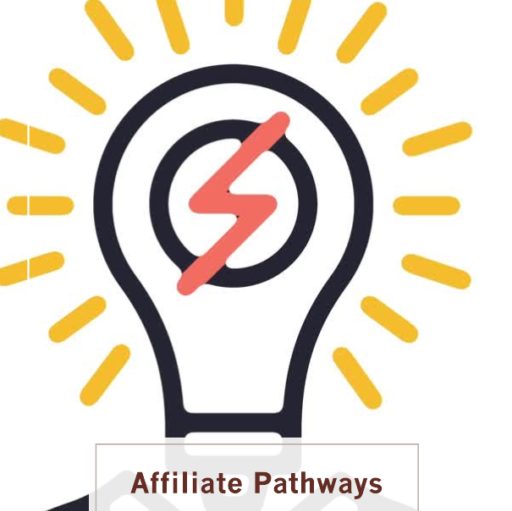The the big affiliate marketing question: How do I begin?
The answer to that is a business plan which has already been made for you — and just in case you missed that, it’s here: Wealthy Affiliate.
Everything, you’ll find, has been neatly summarised for you.
What’s left, then?
The Zen of Affiliate Marketing
A plan to work with yourself — a plan to come to terms with yourself as yourself. That’s the master plan. The mother of all plans. It’s our self we need to reconcile ourselves with at the beginning of any venture. The person we live mostly with is ourself. Whatever external challenges we face, it’s how we deal with ourself that matters most.
Like all ventures, affiliate marketing generates its own avalanche of information that threatens to bury us. And, inevitably, too much information can lead to what’s called analysis paralysis. You can feel overwhelmed and powerless. Believe me, I’ve been there myself.
The most important affiliate marketing question, synonymously and almost simultaneously asked with the question at the very top is . . .
How To Find The Best Niche?
To tell you frankly, good niche ideas . . . they come from within.
Most affiliate marketing programs teach us to choose a niche that most aligns with our interests. There’s no promise of a perfect fit any where, notice. We do the best we can and get on with life — perhaps, one day they might teach affiliate marketing as a therapy.
The ultimate reality is this: we’re imperfect creatures living in an imperfect reality. (Time to rewatch The Matrix). All the decisions we, therefore, make will carry the risk of imperfection. But has that stopped anybody from living?
Every step you take in the business plan will confront you with this issue of imperfection. The Japanese have a beautiful expression for facing this contingency: Wabi Sabi — embrace your imperfections. More on this here in: Niche Affiliate Marketing.
We cannot eradicate imperfections, but we can work on ourselves to master effective affiliate marketing. Your best friend is a supportive platform that empathises with your aspirations . . .
. . . Wealthy Affiliate.
You need to surround yourself with allies. That’s the best advice I can give you in this regard. There’s no better alternative than belonging to a community defined by a common objective: the overarching desire to succeed as an affiliate marketer in their chosen niche.
Show Me The Way
You might find that as you approach the four steps of the business plan, each might require a series of sub tasks — finding a niche will take some research and that in turn will take sifting through to find the best fit. It may seem discouraging at times and you might be tempted to give up. Please don’t.
That’s why I recommend focussing on each task as a finite one to be executed in a finite manner. That means being realistic about your expectations. Rather than looking for the ideal niche, choose the one that most fits your interests. You work by elimination.
Above all, ask yourself this cardinal question: What’s practicable?
Write it down . . . “I can choose X, because it mostly aligns with these interests of mine. And, if I find later on that this was the wrong choice, I shall not blame myself and move on.”
That’s the ironclad agreement with yourself — not to inflict self-recrimination oneself. There’s no glory in self-pity.
Time Management For Affiliate Marketers
You need to do the necessary time audit for affiliate marketers . . . using some basic questions for focus such as . . .
- How are you spending it?
- On which tasks?
- At what times are you most productive?
Time is your most valuable currency. Treat it with respect and spend wisely as you’d your money.
Once you’ve done that block time off for particular tasks — research, for example.
You may find that this will cost you most in terms of time. However, a caveat: assign only finite amounts of time in 1-2 hour blocks, at most.
Steps For You To Follow
- Move away from the computer — do some breathing exercises. Come back after 10-15 minutes.
- Go over your research — and as you do this, jot down your insights — which have, as I find, a habit of coming in sudden bursts rather than a steady stream.
- An hour to two at most for this activity.
- Move away again — more breathing exercises — yoga stretches cannot hurt either. A little bit of exercise is not only good for the body but also the mind. Push ups — that classic — is still around.
- I find that I work best in bursts. But I don’t make this a hard and fast rule, preferring to alternate between short bursts and sustained periods of work.
- Choose whatever works best for you — but work — continuously — consistently — every day.
- It’s only when you work like this that a fly wheel in the vast system turns, setting other wheels in motion. Pure Matrix : ) stuff, no kidding.
- Rinse and repeat.
Become A Good Researcher
The first step of this process can be disappointing — it may even insult your intelligence.
Being a researcher comes down in one sense to good record keeping. Yes.
Research is only as good as the records we keep and the analysis we subject it to retrospectively.
Any number of recording methods can work — spreadsheets; notebooks; index cards; Post-it notes; or a combination of all or some.
Nothing could be more painful than losing our research. It is the data on which we depend to formulate our next action. And, therefore, I cannot stress sufficiently the need for preserving your research for record keeping and your continuing education.
You may be amazed when you go back to your earlier research later and realise how far you’ve travelled. What could be more inspiring?
Getting back to the present, — what leaps out at you, as you go over your research notes? Highlight them; stick flags on them; colour code them, if you like — and then on a separate page bullet point them.
Next, number the bullet points in the order of priority. (In word processing speak, you’re now making the transition from an uncategorised to a categorised list). Ideally speaking, research and actionable items must be separated into two broad categories. In reality, however, you might often find that they overlap — as do other things. Try not to overdo this by attempting to force items into watertight compartments. (You might even find that you have to invent new categories). Life doesn’t work that day.
Information Vs. Knowledge
Although large banks of information exist out there, it is how — and how often — you interact with the material that matters in the end. This is how learning works. There’s no paucity of information in the world — in fact, we’re drowning it even as we speak. What may be lacking is knowledge.
Yes, information and knowledge are different categories. The former is like the bricks we need, the latter like the wall we hope to build from them.
To cut a very long story short: the point of gathering information is to formulate meaningful questions from it. The path to knowledge lies through questions. The more you ask, the more you know.
Let me give you an example. As you were going over your research, you noted an item, “Keywords.” You flagged it for further research. But what’s the research question? Depending on how basic or advanced your research is, it could be, “What are keywords?” or, “How do I optimise keywords for better conversions?”
While research may be broad initially, its ultimate purpose is to lead us to specific answers to specific questions. Another way of putting this would be, research means moving from a wide angle camera shot to a telescopic — may be even a microscopic — shot. Research can be likened to mining for iron ore and then making steel out of it.
The Best Affiliate Marketing Platform
The fact is that there is no such thing as “the affiliate” program — there are only affiliate programs.
And yet, it would be callous of me not to spend some time on this crucial issue that is likely to beset you.
At this initial stage what is important is to understand how effective an affiliate program — the rest is a matter of personal experience.
I can only tell you honestly how I found my platform — and what led to it.
Like many decisions in life I had taken, it was spontaneous but not completely unthinking. Temperamentally, I am an ever curious person who likes to explore and find new things. Thus when ChatGpt came online, it added a new tool to the tool box — dare I say, toy box.
Someone close to me showed me how theirs was working and even asked me to pop a few questions into it — I did and was impressed.
Soon after opening an account, I started peppering it with questions. One of the first questions I asked ChatGpt was whether it was sentient — through a long series of interrogations, it declared that it wasn’t sentient — why? — because it pointed out that it was merely a large language model (LLM) and not even a realtime apparatus. Its job, it said, was to scour the world’s databases and find out what has been written about a certain issue and produce — or reproduce — it in an objective manner. In other words, it was a massive search engine.
I was a bit disappointed — I had great hopes of engaging in philosophical debates on the great issues of life. My disappointment notwithstanding, I ploughed on, knowingly, this time, that the results would be that of a search-find-reproduce process. And, although that proved to be mostly correct what I discovered to my delight was the quality of the results — it reflected great intelligence in producing coherent statements about matters which I had been inquiring into myself. This changed my view of ChatGpt.
It may — or may not — be sentient, but it could be a great research assistant. I only had to articulate the questions.
At one one point, I asked ChatGpt to do a costing of an online business plan — it was able to give me a detailed costing — the total of which came to something over a 1000 dollars — just doable, I thought.
I ventured on to other such questions and eventually came to the issue of affiliate marketing: it produced a list of platforms in order of priority. I found mine at the top.
However, before choosing the program/platform I explored some vital questions:
- What’s the pricing structure?
- Is there a free version that I could test-drive? (Yours is a click away below).
- What does the platform actually provide?
- Is it aligned to my values?
- What niches does it offer?
- How user-friendly is it?
- What tools does it provide?
- How robust is its native community
- Is this going to be right for you? Only you can decide.
Click For Free Account: Wealthy Affiliate
And while there is no such thing as a perfect platform — just as there’s no such thing as a perfect business plan — what matters in the end is how comfortable you’re with a platform or its essential features. In my case, I take a mostly-approach: if it ticks most of the boxes, it’s the right one for me.
I apply this principle in (you guessed it) most of my decisions. It’s the overall reputation of a platform that counts — it can become decisive in your ultimate success.
Best wishes for your great success.
Cheers.

